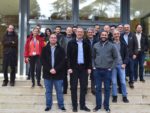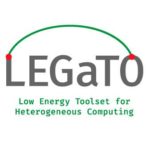Barcelona, 16 April 2024 – The eFlows4HPC project announced it has delivered a workflow platform and an additional set of services facilitating the integration of high-performance computing (HPC) simulation and modeling with big data analytics and machine learning techniques. Significant advancements in defining complex workflows resulted in enhanced workflow efficiency, and increased overall development and […]
Video: Competence Centres in HPC – their Role in European Innovation
In this video from the HPE Conference, Bastian Koller from HLRS discusses Competence Centres in HPC and their role in European innovation. “The Centres of Excellence (CoE) develop leading edge technologies to promote the adoption of advanced HPC in industry and public administration, and increase competitiveness for European companies and SMEs through access to CoE expertise and services.”
EPEEC Project Fosters Heterogeneous HPC Programming in Europe
The European Programming Environment for Programming Productivity of Heterogeneous Supercomputers (EPEEC) is a project that aims to combine European made tools for programming models and performance tools that could help to relieve the burden of targeting highly-heterogeneous supercomputers. It is hoped that this project will make researchers jobs easier as they can more effectively use large scale HPC systems.
Podcast: Sciencetown Investigates Extreme Computing at SC19
In this Sciencetown podcast, we follow experts from around the world to the epicenter of supercomputing – the annual, North American supercomputing conference or SC19. We ask them to weigh in on how the future of computers, artificial intelligence, machine learning and more are coming together to shape the way we explore and understand our world.











